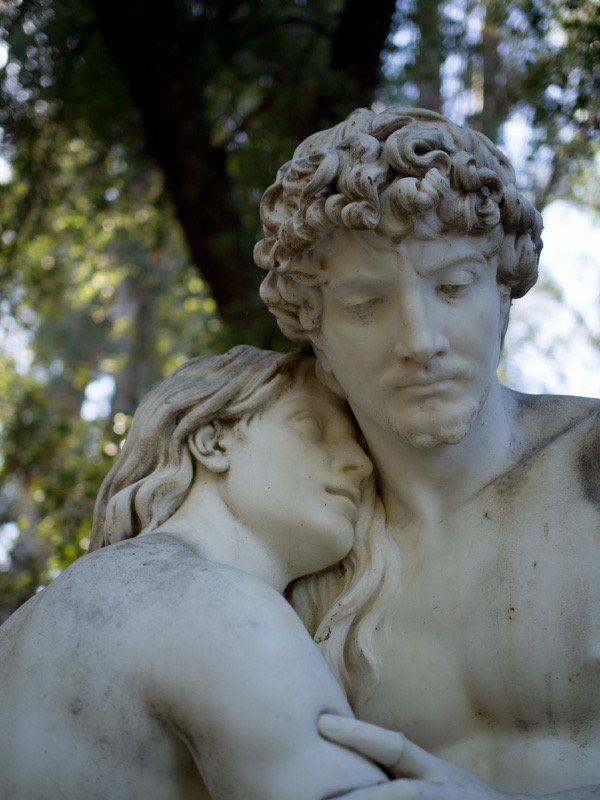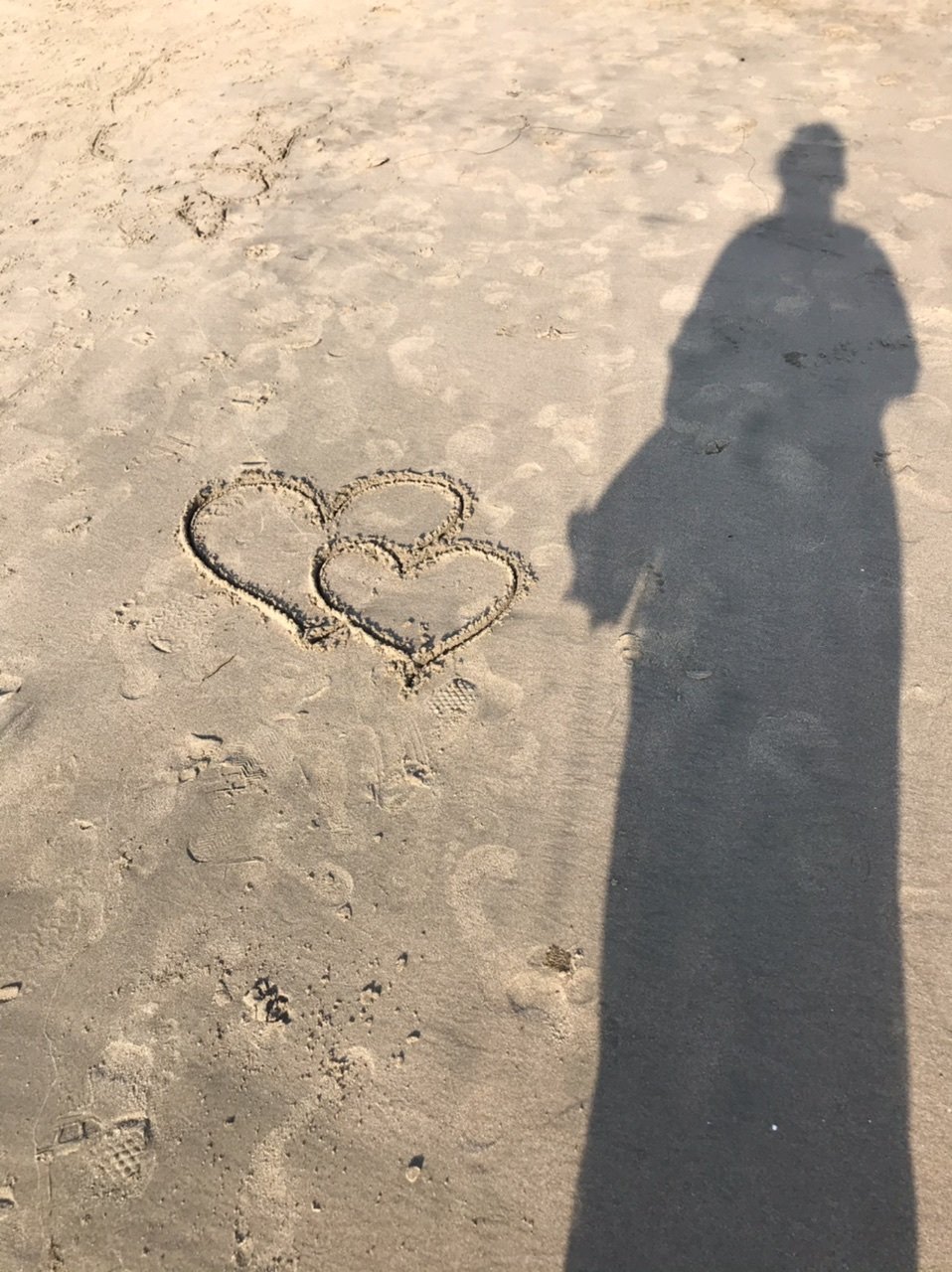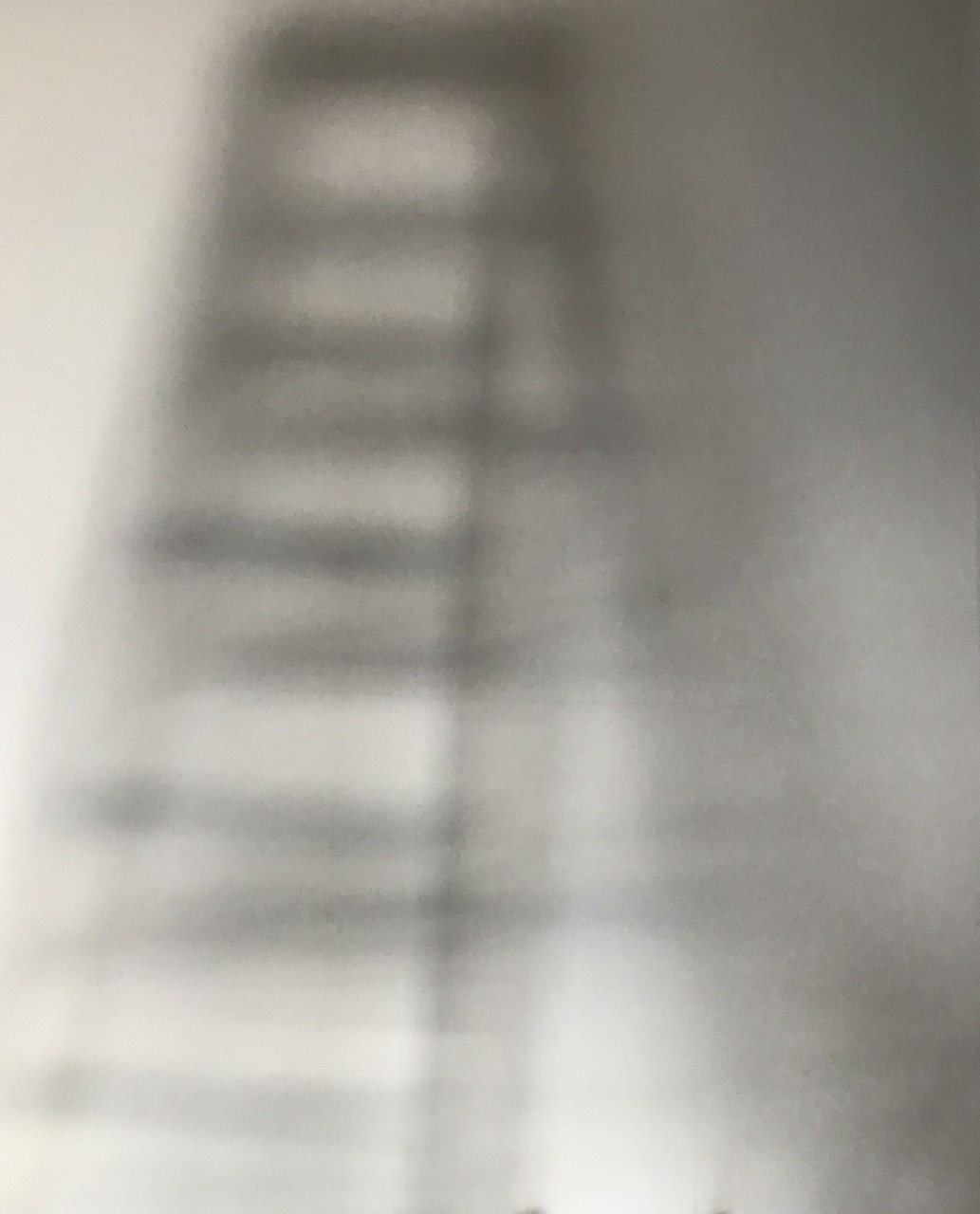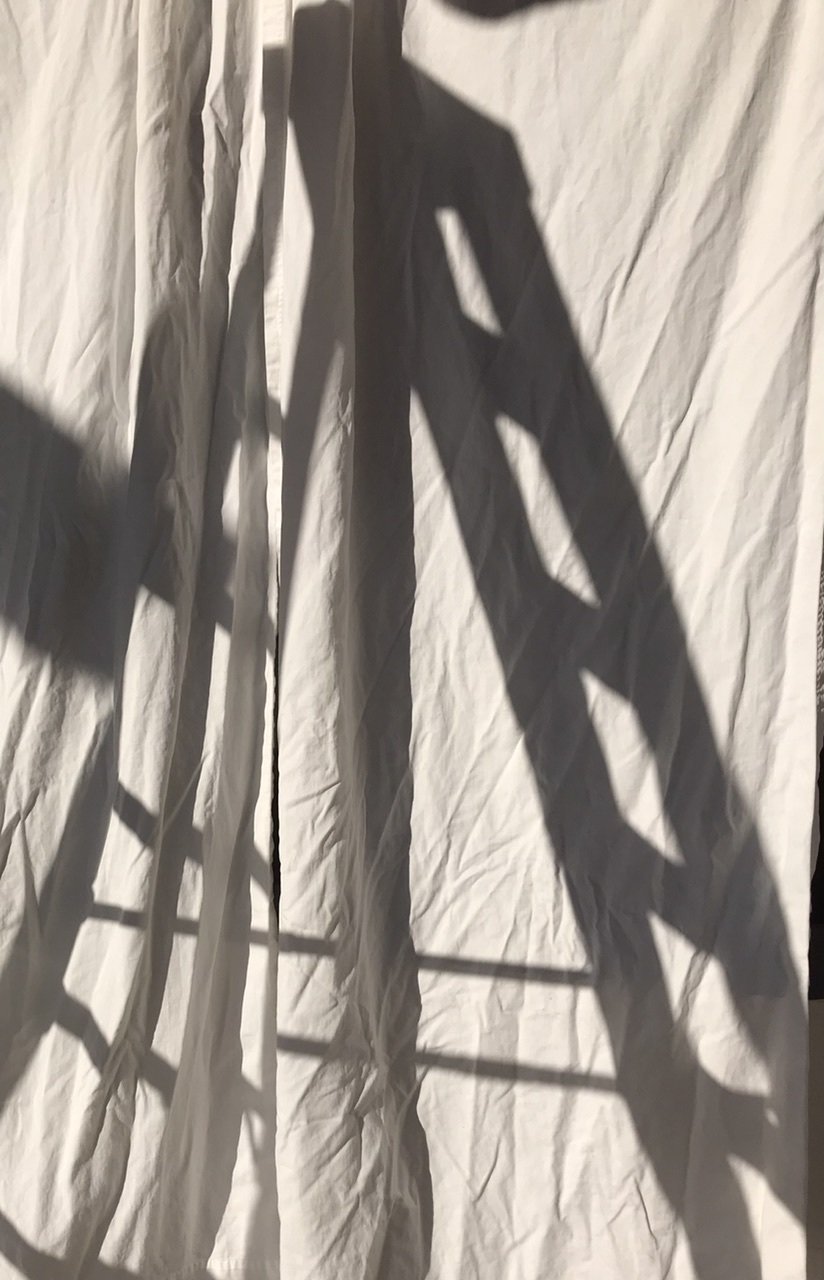Questioning Shadows and Statues

That’s us. You stood by me as I marveled at their loving beauty. It seems a timeless space of listening and learning, a place I can touch with my soul.
That's us. Loving forever shadows living in the gentle liquid waves.

That's me.
A shadow with an impossible task before me.

Who is this shadow and where is she going?
It’s a real question as I navigate survival. Anderson Cooper is currently producing a series of podcasts about grief. After listening to the half dozen he’s released thus far, I felt less alone, somehow connected to others as all of our heartbreaks were honored. He asked the question, what have you learned that might help others with grief?
What have I learned ?
I remember early on being told to write a letter to my grief, to pretend that my grief is my friend, to treat my grief as a teacher. None of this made sense to my brain while I was suffering what I now understand to be Acute Grief which lasted for well over a year. My mind tried to understand these questions, ponderings and suggestions, but it was like reading a text from a 2 year old child who's been playing with the phone. A string of nonsense offered to a shadow so that it might become real. I’ve learned there are many different types of grief.

In Acute Grief, just being companioned allows the person to live through the agony of a day. They’re not ready to call grief a friend, a penpal or a teacher. Few people choose to be a support, theit own helplessness confounds them and sadly they choose abandonment instead.
Andrew Garfield so eloquently communicated that grief is just all the love we still have to give to that person, all the love that will last our whole lives. His openness about grief and love flooded the internet. Grief educators, advocates, coaches and grievers themselves found solace in his words and a sense of being heard in his accurate framing of grief.
Trauma is also being recognized and researched like never before. The physicality of emotional trauma is being understood and honored, while various modalities are being successfully employed to address trauma. There’s a plethora of helpful, well researched models to deal with the symptoms of trauma. Finding and then researching these models took a tremendous amount of energy from my depleted grieving mind.
I’ve learned that grief and trauma are not the same thing. When a loss is traumatic, sudden, out of order, violent or there’s much suffering, trauma and grief are intertwined making them seem to be one and the same. Disentangling them, understanding their differences and addressing them appropriately was huge for me. Imagine someone having a broken leg and a burn on their arm, and the treatment for the leg was for a burn and arm was treated as if it were broken. That’s how crazy the idea of confusing grief and trauma is, and yet it’s very common in our culture right now. It’s so important to understand the difference, Whether you’re the griever, a supporter or a professional.
Sigmund Freud's theory regarding grief declared detachment from the deceased to be the end goal. This birthed a narrative that was perpetuated both in academia and common culture of an end point marking mental stability and recovery once the griever had completely detached from their loved one. This amounts to grievers who continue to mourn and love to be considered mentally unstable. It is one of the most inhumane forms of shaming a suffering soul.
 Thankfully Dennis Klass, Phyliss Silverman and Steven Nickman challenged this idea of detachment, spending two decades researching and then publishing the text Continuing Bonds.
Eastern cultures and Western support groups were their subjects. They found that these studied groups functioned in healthy ways by staying connected to their loved ones while engaging in present living without an end goal of separation.
Thankfully Dennis Klass, Phyliss Silverman and Steven Nickman challenged this idea of detachment, spending two decades researching and then publishing the text Continuing Bonds.
Eastern cultures and Western support groups were their subjects. They found that these studied groups functioned in healthy ways by staying connected to their loved ones while engaging in present living without an end goal of separation.
I’ve learned that no matter how much psychological indoctrination I’ve suffered, my internal instinct is trustworthy. I’ve learned that shock, trauma and grief can make you feel like you are losing your mind, and harmful theories accepted as truth only add to the agony. I’ve learned that finding ways to stay connected to my beloved is what comforts me and brings me peace.
I stopped writing or sharing on my blog several months ago for a variety of reasons. But I’ve continued to journal for my own understanding and clarity. My blog was a combination of the essential human need to be witnessed in my grief, to connect with other grievers to help them and myself feel less alone and to hopefully educate supporters.
Anderson Cooper’s question prompted me to reflect and realize I have learned some things that are worth sharing.
